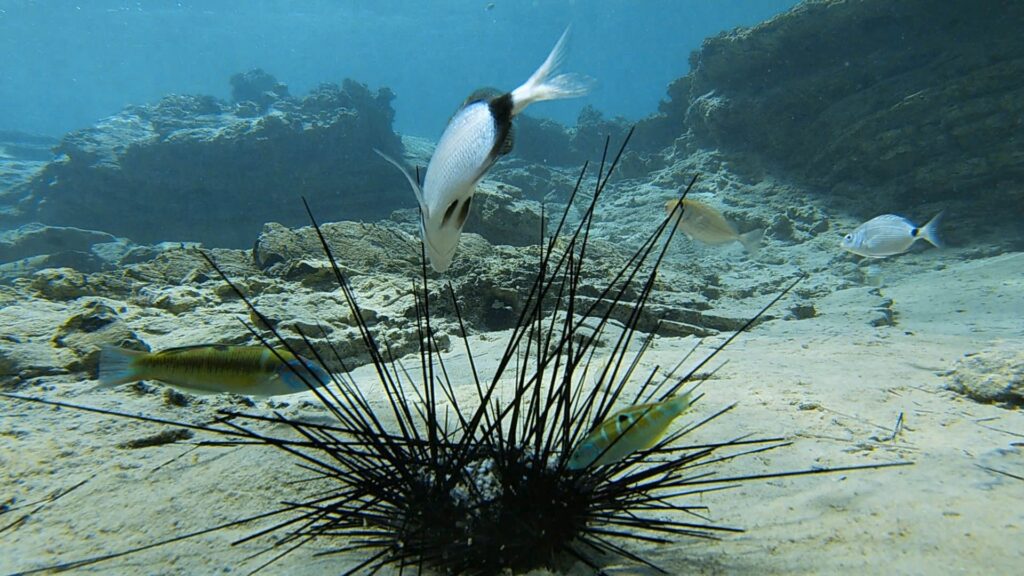The black sea urchin, a species essential for the healthy functioning of a coral reef, has been entirely wiped out across the entire Gulf of Eilat by a deadly epidemic, new research shows.
Black sea urchins are a coral reef’s “gardeners,” preventing algae from taking over and suffocating the coral that compete with them for sunlight by feeding on them.
Researchers at Tel Aviv University say that the epidemic was so severe that all the black sea urchins at a northern shore in Eilat were wiped out in just weeks. The same event occurred across all other sites in the coastal city.
The researchers believe that the deaths were caused by a parasite that spread from the Mediterranean to the Red Sea. Emergency steps for protecting Israel’s coral reefs are now being considered. The epidemic has also hit coral reefs in other countries in the Middle East, including Jordan, Egypt, Saudi Arabia, Greece, and Turkey.
The mass mortality reminded the TAU researchers of the disappearance of the sea urchins in the Caribbean in the 1980s. Once they disappeared, the algae multiplied without control and blocked the sunlight from reaching the coral, turning the coral reef into an algae field.
“At first we thought it was some kind of pollution or poisoning, or a local chemical spill, from the industry and hotels in the north of the Gulf of Eilat, but when we examined additional sites in Eilat, Jordan, and Sinai, we quickly realized that this was not a local incident,” said Dr. Omri Bronstein, of the School of Zoology, who led the study.
“All findings pointed to a rapidly spreading epidemic,” he said.
“It’s a fast and violent death: within just two days a healthy sea urchin becomes a skeleton with massive tissue loss. While some corpses are washed ashore, most sea urchins are devoured while they are dying and unable to defend themselves, which could speed up contagion by the fish who prey on them.”
“The window of opportunity for preserving a healthy population of this species in Eilat has already closed. If we want to establish a broodstock population, we must do it today, by preserving healthy individuals from the Israeli Mediterranean – before the disease, spreading from the north, reaches this area,” said Bronstein.
“This is a complex task, but it is absolutely necessary if we wish to ensure the survival of this unique species that is so critical to the future of coral reefs.”
Related posts

Israeli AI Safety Tool Among TIME’S Best Inventions For 2024

TAU Team Discovers Mechanism To Eliminate Cancerous Tumors

Ashdod Port Investing In Startups As Part Of Innovation Strategy




Facebook comments